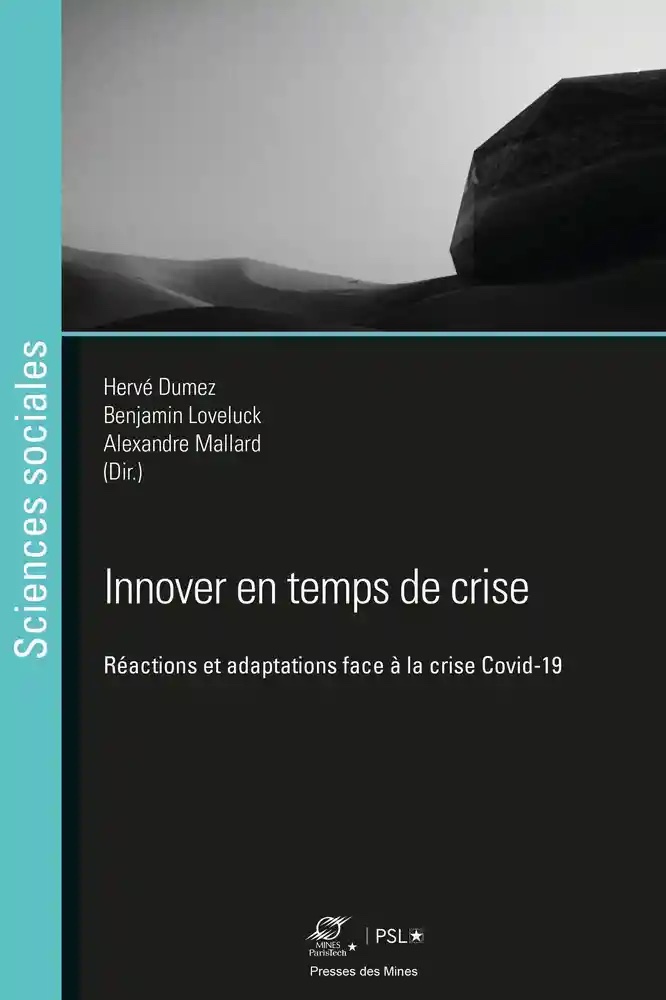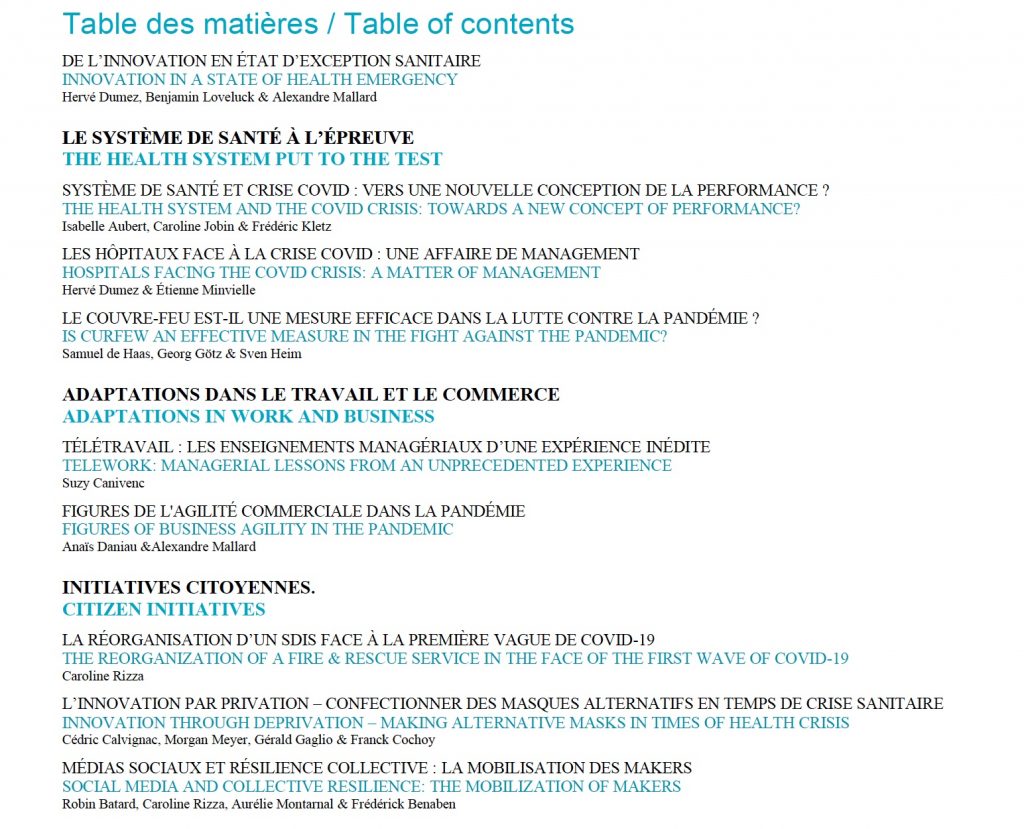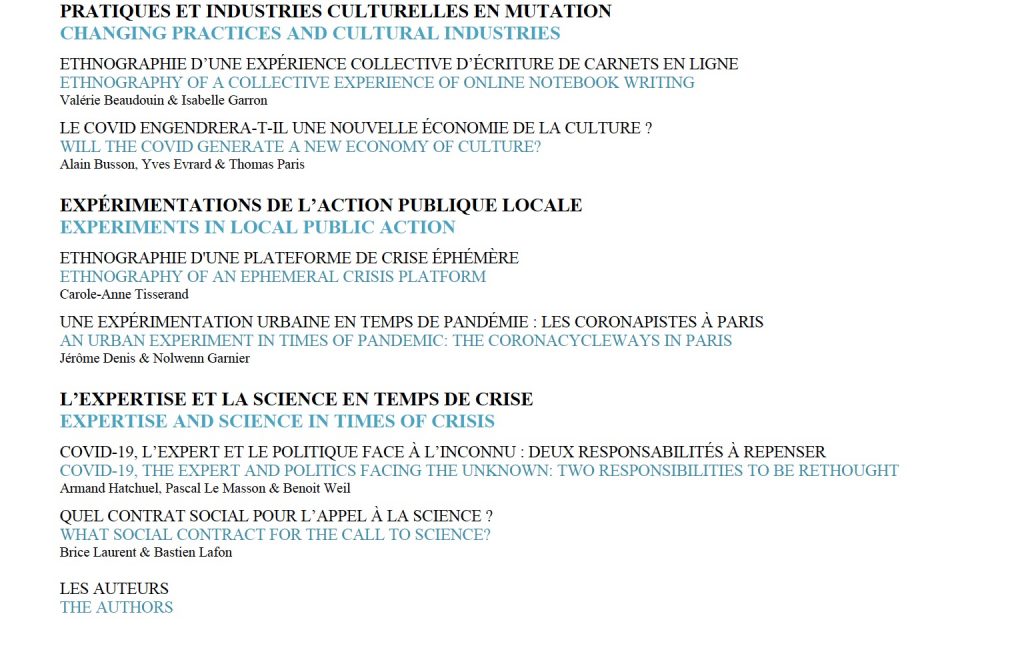The CSI and i3 are pleased to announce the release of the book
Innover en temps de crise
Réactions et adaptations face à la crise Covid-19
Innovating in times of crisis – Reactions and adaptations to the Covid-19 crisis
Hervé Dumez, Benjamin Loveluck and Alexandre Mallard (Eds.)
Assurément, les crises donnent à penser – mais pas seulement sur les moyens à mettre en œuvre pour les éviter ou pour en sortir. Elles nous interpellent dans notre capacité à trouver des solutions face à des difficultés inédites, à reposer autrement des problèmes que l’on croyait résolus ou à accélérer des évolutions que l’on avait seulement esquissées. En un mot, elles conduisent à innover. L’épidémie de Covid qui a débuté à la fin de 2019 en constitue un cas emblématique.
Si elle a en un temps record déstabilisé le fonctionnement social, politique et économique des sociétés à une échelle planétaire, elle aura constitué aussi une occasion d’innover dans toute une série de situations. Cet ouvrage examine la manière dont se sont jouées la réaction, l’adaptation et la transformation face au virus, dans des domaines divers : l’expertise et la décision politique, les pratiques de mobilité, le petit commerce, le télétravail, l’organisation des institutions de santé, la culture, la communication sur les média sociaux…
Rédigé par des chercheurs en gestion, économie, sociologie, sciences de l’information et de la communication rassemblés dans l’Institut Interdisciplinaire de l’Innovation (i3), ce livre témoigne de la vigueur des logiques individuelles et collectives qui se sont manifestées dans la crise sanitaire, et de la variété même des formes sous lesquelles se présentent les phénomènes d’innovation.

Crises definitely provide food for thought – but not only on how to avoid them or how to get out of them. They challenge us in our ability to find solutions in the face of unprecedented difficulties, to rethink problems that we thought had been solved, or to accelerate developments that had only been sketched out. In a nutshell, they lead to innovation. The Covid epidemic that began at the end of 2019 is an emblematic case in point.
While the crisis has destabilized the social, political and economic functioning of societies on a planetary scale in record time, it was also an opportunity to innovate in a whole range of situations. This book examines the way in which the reaction, adaptation and transformation to the virus were played out in various areas: expertise and political decision-making, mobility practices, small businesses, teleworking, the organization of health institutions, culture, communication on social media, etc.
Written by researchers in management, economics, sociology, and information and communication sciences, gathered in the Interdisciplinary Institute of Innovation (i3), this book testifies to the vigor of the individual and collective rationales expressed in the health crisis, and to the variety of forms in which innovation phenomena occur.
Presses des Mines, April 2022.
Read an excerpt in pdf format



